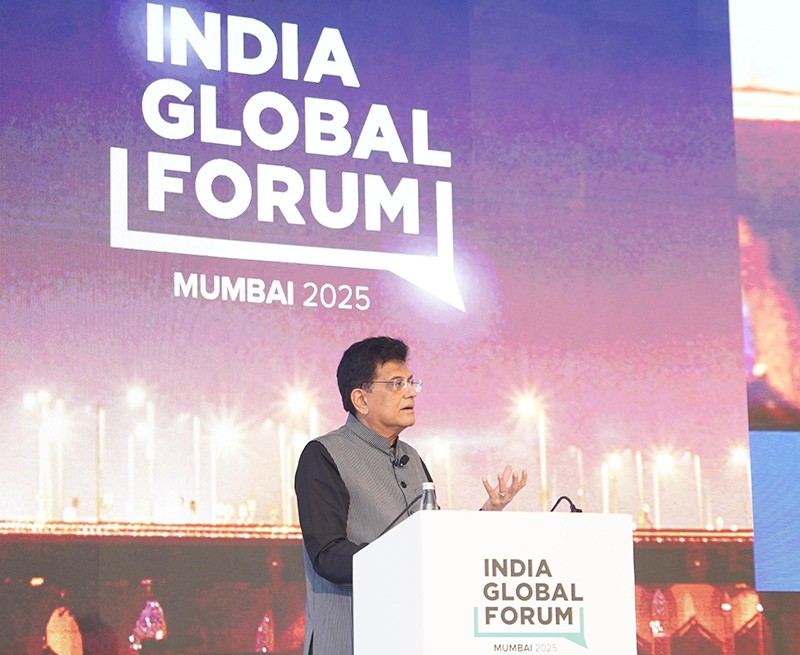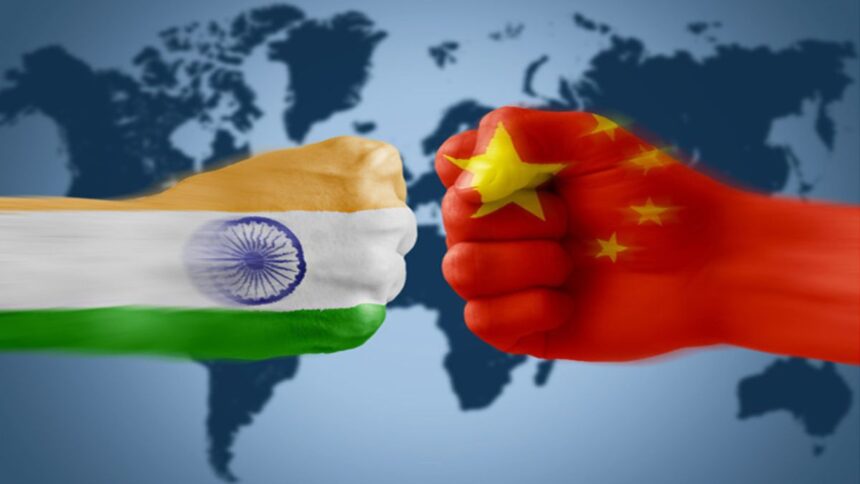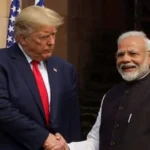India’s Commerce Minister Piyush Goyal has criticised China’s trade practices, saying decades of unfair methods have caused global economic disruptions that have resulted in US Tariffs being imposed causing global market turmoil.
Speaking at the India Global Forum, he pointed out that short-sighted decisions by world leaders allowed these practices to persist, ultimately benefiting China at the expense of countries like India.
Goyal urged international cooperation to establish fair trade norms while defending tariffs and dismissing concerns about their impact on domestic growth. He also called on Indian companies to seize this moment as an opportunity, similar to past crises like the Y2K problem and the Covid-19 pandemic.

China’s Economic Growth at the Expense of Others
Goyal accused China of using questionable methods, such as hidden subsidies and exploitative labour practices, to fuel its economic rise since joining the WTO in 2001. He emphasised that this growth came at the cost of other nations’ manufacturing sectors, including India’s. According to him, the current trade tensions are not sudden but the result of years of neglect by the global community.
“This situation reflects nearly three decades of economic harm caused to several countries,” Goyal remarked, highlighting the impact of China’s trade practices on international economies.
Goyal criticised global leaders for believing China would reform its trade practices over time by adopting transparency and fairness. Instead, he said, China exploited these expectations by using strategies like predatory pricing and non-transparent subsidies, creating an uneven playing field.
“Many believed China would transform and act fairly in the global market,” Goyal said. “But that hasn’t been the case.”
The Minister encouraged Indian businesses to support domestic industries by strengthening supply chains and aligning with national priorities. Drawing on examples like the IT sector’s response to the Y2K challenge, he stressed that India can turn trade challenges into opportunities.
“Just as we tackled the Y2K issue and the Covid pandemic, we can turn this into a chance for growth,” Goyal stated. He also urged industries to report unfair competition, especially cases of dumping by foreign companies, highlighting ongoing concerns from the steel sector.
Goyal criticised the previous UPA government for the sharp rise in India’s trade deficit with China. He claimed that between 2004 and 2014, the deficit increased 25 times, putting local industries at a disadvantage. He also alleged that agreements signed during that period worsened India’s dependence on Chinese imports, harming domestic industries.
“This damaged our local manufacturing and left us reliant on China,” he said. “We’re still dealing with the consequences of those years.”

Trump’s Tariffs and Global Market Turmoil
Goyal’s comments came amid market instability caused by escalating US-China trade tensions. On the same day, Hong Kong’s Hang Seng Index experienced its biggest crash since 1997.
Meanwhile, US President Donald Trump defended his tariff policies, claiming they were bringing significant revenue to the United States while warning China of further hikes.
“China has been the biggest abuser in global trade,” Trump said, accusing Beijing of disrupting markets worldwide.
Despite global trade tensions, Goyal explained that India’s tariffs on US goods averaged just 7–8 per cent, with many targeted products not being imported into the country. He reassured that India’s economy remains strong, with limited reliance on exports, a stable rupee, and resilient stock markets.
“India’s markets have been among the least affected by these disruptions,” he noted.
Goyal rejected concerns about de-globalisation, stating that the world is moving towards fairer trade systems. He argued that the focus should be on building transparent and ethical practices, rather than creating barriers.
“We are entering a phase of re-globalisation, not de-globalisation,” Goyal said. He also raised concerns about Chinese companies like BYD entering India, stressing that any partnerships must adhere to principles of transparency, reciprocity, and fairness.
Related News:
India and the U.S. Come Closer to a “Win-Win” Bilateral Trade Deal

Geoff Thomas is an award winning journalist known for his sharp insights and no-nonsense reporting style. Over the years he has worked for Reuters and the Canadian Press covering everything from political scandals to human interest stories. He brings a clear and direct approach to his work.














